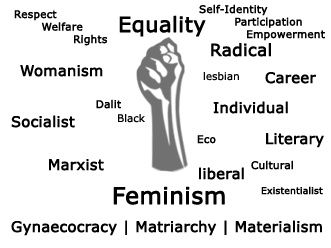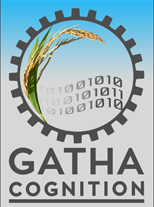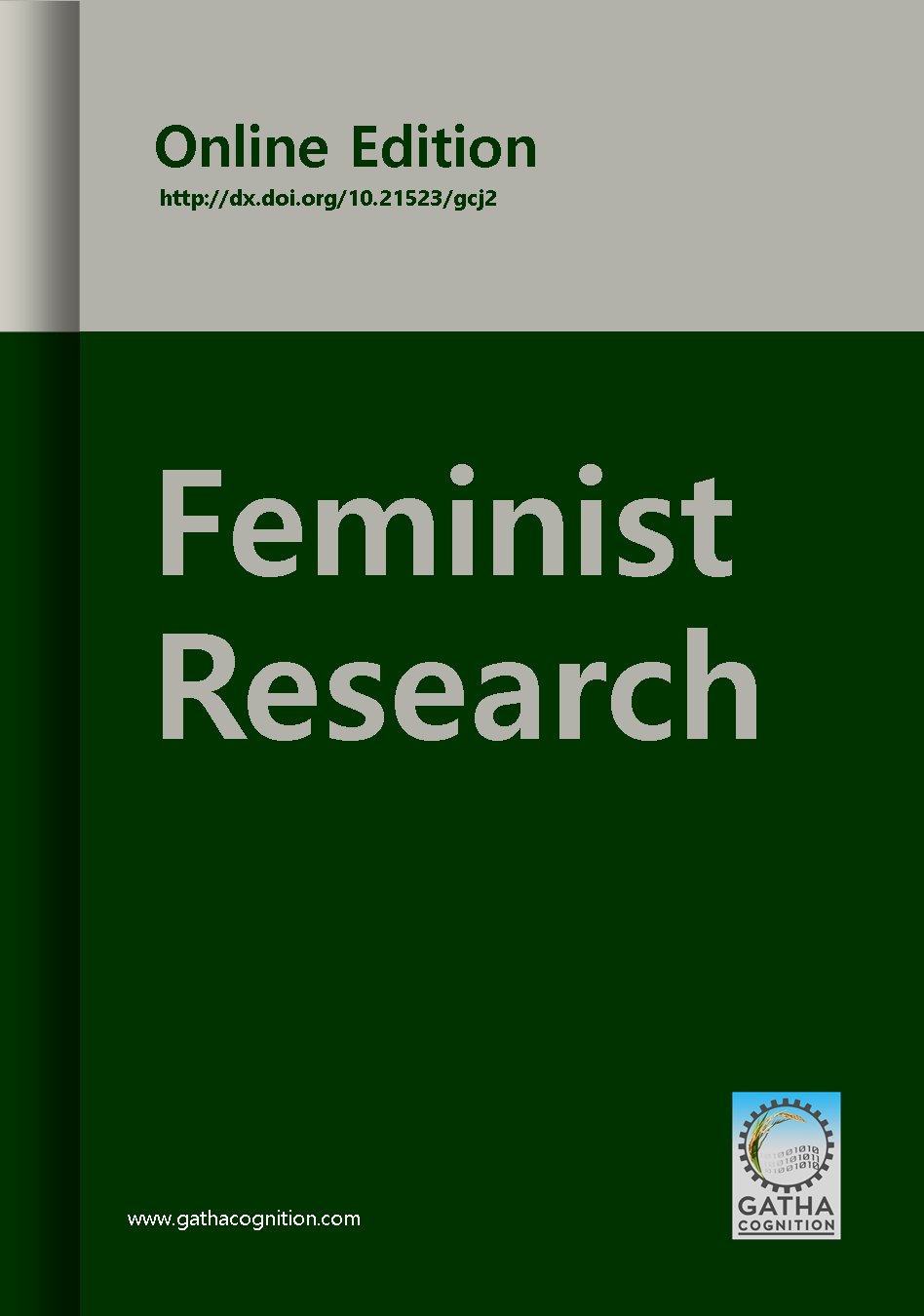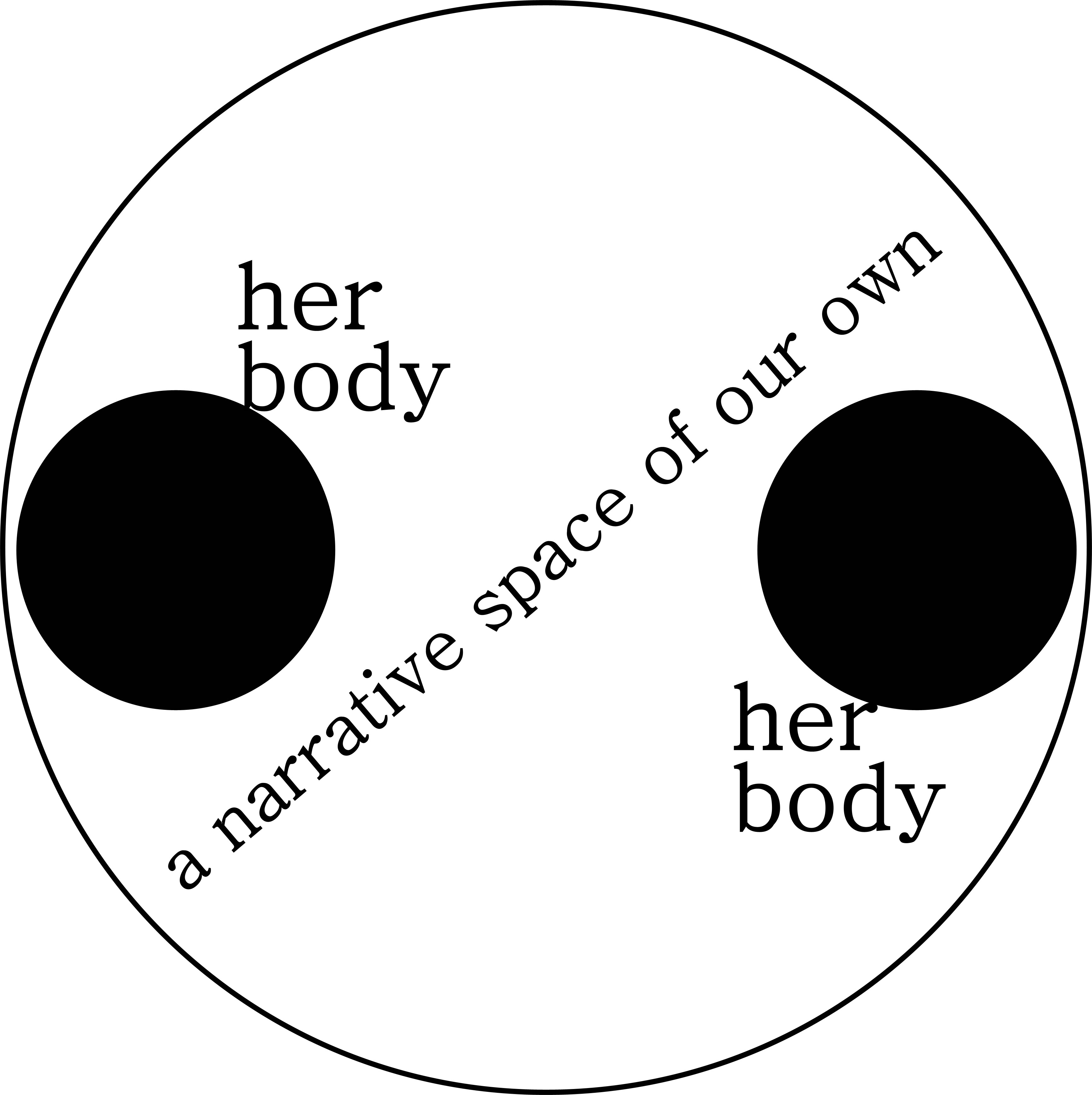Article Title :
The Feminist Views: A Review 
1 (2017)
3-20
Patriarchy , Feminism , Marxism , Socialism , Liberalism , Womanism , Feminist waves , Feminist theories , Women empowerment


The first wave of feminism emphasised on women’s emancipation and equality, whereas the second wave focused on female oppressions and struggled for their liberation. The third wave stressed the individual empowerment. 1) The Marxist feminism confined to united struggle for women’s rights. 2) The socialist feminism exposed the gender aspects of welfare state. 3) The liberal feminists struggled for the empowerment and public participation of women, 4)The individual feminism aimed at personal abilities of woman, 5) The career feminism inspired women to free in the ‘World of Men’, 6) The global feminism insisted the boundary breaking activities for women’s empowerment and reorder the rules, 7) The radical feminists bounded to entire change in social structure for equality, 8) The lesbian feminists denied the need of men for existence of women, 9) The black feminists struggled for equality within the races and Dalit within castes, 10) The womanism supported the self-identity and -respect, 11) The cultural feminists and literature explained the cultural roots of discriminations and exploitations of women, 12) The eco-feminists focused on environmental aspects and resources related to women. However, 13) The existentialists are conscious about interdependence. The feministic analyses are active, challenging and important for social welfare.

Marxist and socialist feminists struggled for women’s rights.
Radical feminists confined to entire change in social structure for equality.
Feminists focused on gender equality, women’s emancipation and empowerment.
Men have control over women’s sexuality and labour.
Feminism is an effective and useful tool for social welfare.
Liberal, individual and career feminists aimed at participation, empowerment and emancipation of women.
Ghosh, S., 2007. Feminism in India, Maitrayee Chaudhuri (Ed.), Zed Books, 33-39.
Hans, A., 2013. Feminism as a literary movement in India, International Research Journal of Applied and Basic Sciences, 4(7), 1762-1767.
Joseph, S., 2007. Debating Marxist-Feminism, Economic and Political Weekly, 42(35), 3545-3546.
Jubimol, K. G., 2012. Women, nature and native: An eco-feminist reading of Leslie Marmon Silko’s Ceremony, International Journal on Multicultural Literature, 2(1), 124-131.
Kajiwara, K., 1968. The “Materialists” of Virginia Woolf, Bulletin of the Kyoto University of Education, Ser. A, Education, social sciences, literature and arts, 33, 147-160.
Karve, I., 1972. Sanskriti, Deshmukh and Company, Pune, Ed. 1972 (1st), 2006 (2nd), 88.
Keller, K., 1994. Mothers and work in popular American magazines, Westport, CT: Greenwood, 4-163.
Mangayarkarasi, K., 2012. Dualism of Canadian existence in Margaret Atwood’s The Journals of Susanna Moodie, International Journal on Multicultural Literature, 2(1), 37-41.
Patil, S., 1982. Dasa-Shudra Slavery: Studies in the origins of Indian slavery and Feudalism and Their Philosophies, Das-Shudranchi Gulamgiri, Mavlai Prakashan, Shirur, District - Pune, 135-179
Patil, S., 2010. Primitive Communism, Matriarchy-Gynocracy and Modern Socialism, Mavlai Prakashan, Shirur, Dist. Pune, 7- 47.
Prasad, S., 2011. The social vision in the novels of George Orwell, Anusandhanika, 9(1), 126-130.
Salunkhe, A. H., 1989. Hindu Sanskriti ani Stri, Lokwangmay Gruh, Mumbai, Ed. 2013, 70.
Salunkhe, A. H., 1993. Manusmritichya Samarthakanchi Sanskriti, Ed. 2008, Lokwangmay Gruh, Mumbai, 99-147.
Saptarshi, P. G. and Bhagat, V. S., 2005. Employment Potential in Agriculture: A Case Study of the Purandhar Tahsil of the Pune District, Maharashtra, Landscape System and Ecological Studies, 28(1), 29-37.
Sen, S., 1998. Communist Manifesto and Theory of Revolution, National Book Agency, Calcutta, 1-3.
Sharma, N., 2012. Cultural conflict in Jhumpa Lahiri’s The Namesake, International Journal on Multicultural Literature, 2(1), 111-116.
Sharma, P., 2012. Mulk Raj Anand’s Two Leaves and a Bud: A saga of Gangu’s injured self, The Criterion: An International Journal in English, 3(1), 1-7.
Ussher, J. M., 2005. Unravelling women’s madness: Beyond positivism and constructivism and towards a material-discursive-intrapsychic approach, Women, Madness and the Law: A feminist reader, Ed. R. Menzies, D. E Chunn and W. Chan, 19-40.
Weait, M., 2007. On being responsible, Sexuality and The Law, Feminist Engagements, Ed. Vanessa E. Munro and Carl F. Stychin, Routledge-Cavendish, 19-50






